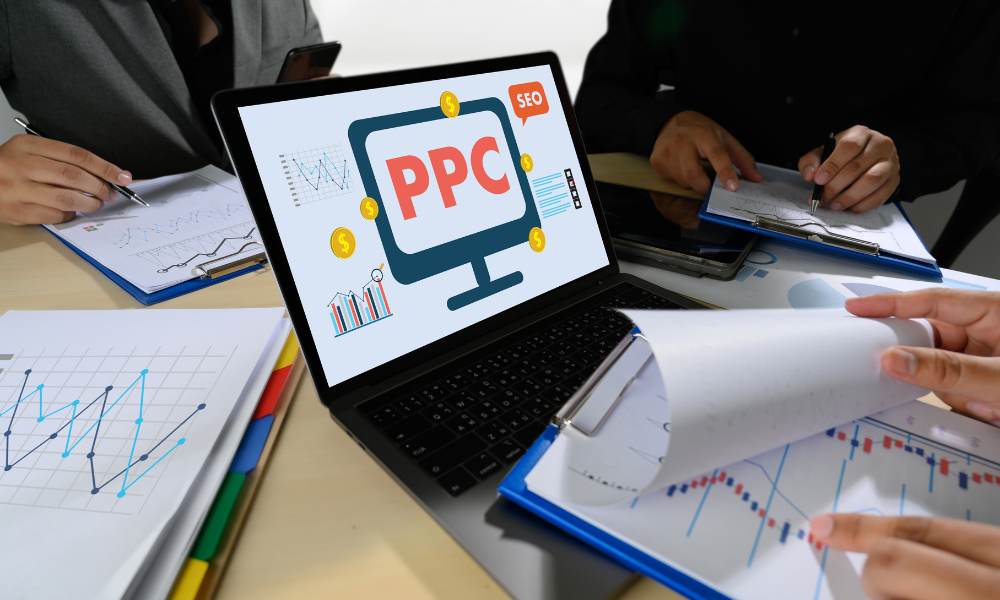In the fast-paced world of construction marketing, every dollar spent on advertising needs to deliver results. Pay-Per-Click (PPC) advertising, while an effective tool to generate immediate leads, requires careful monitoring to ensure that the return justifies the investment. As someone with years of experience in the construction and digital marketing industries, I understand the challenges you face when determining the true value of your PPC campaigns. In this article, I’ll walk you through the steps to track PPC ROI effectively and how it can help you optimize your ad spend.
What You Will Learn:
- Understanding PPC ROI – What it is and why it matters.
- The Difference Between PPC ROI and ROAS – What sets them apart.
- The PPC ROI Formula – How to calculate ROI.
- 5 Steps to Track PPC ROI – A simple, effective approach.
- Actionable Tips – Additional strategies to enhance your PPC efforts.
Let’s dive into how you can start tracking your PPC campaigns’ ROI with clarity and confidence.
Understanding PPC ROI: Why It’s Critical for Your Construction Business
PPC ROI is a measurement that helps you assess how much profit your construction business is generating from your paid ads in relation to what you’re spending. Simply put, it’s the return on investment you get from PPC campaigns. If you’re paying for clicks but not seeing sufficient returns, your PPC strategy might need a serious review. Positive ROI indicates that your ads are working and bringing in more revenue than they cost.
Why is PPC ROI particularly important in the construction industry? As a contractor, builder, or project manager, you’re likely managing multiple projects at any given time. Your budget for advertising is often limited and needs to stretch far. Without the right PPC ROI insights, it can be easy to waste money on ads that aren’t driving the results you need.
PPC ROI vs. ROAS: Understanding the Difference

A common point of confusion in PPC is the difference between PPC ROI and Return on Ad Spend (ROAS). Although both metrics evaluate your campaign’s effectiveness, they focus on different aspects:
- PPC ROI: Looks at the overall profit from your entire PPC strategy, including ad spend, tools, and other costs involved in running ads.
- ROAS: Measures the revenue generated directly by your PPC campaigns against the cost of your ads. It’s more focused on individual campaigns, making it a narrower metric than ROI.
Both are important, but PPC ROI offers a more comprehensive look at the broader impact of your paid ads, while ROAS is excellent for evaluating specific campaigns or channels.
The PPC ROI Formula
Tracking PPC ROI starts with calculating it. The formula is straightforward and will help you understand whether your efforts are paying off:
PPC ROI (%) = (Total Revenue – Total Expenses) / Total Expenses x 100
The real challenge is ensuring you include all relevant expenses in your calculation. Don’t forget to include the costs of tools, software, or any additional marketing tactics used within your PPC strategy. By capturing all costs, you can get a true picture of your return.
5 Steps to Track PPC ROI for Construction Businesses
Now that you understand the basics of PPC ROI, let’s break down the five essential steps to track your ROI effectively. These steps will ensure that you not only track but also optimize your PPC efforts for maximum results.
1. Set Up Conversion Tracking
To track PPC ROI, you need to have proper conversion tracking in place. This allows you to follow the path from click to conversion, meaning you can directly link ad clicks to sales or leads. For example, if someone fills out a form for a construction estimate or requests a quote after clicking on one of your ads, that conversion should be tracked.
If you run an eCommerce site or offer online services, dynamic value tracking is beneficial as it allows you to track conversions like sales with varying values. For lead-generation construction businesses, assigning a value to a qualified lead (SQL) helps you assess the financial value of each conversion.
2. Centralize Your Data in a CRM
When managing PPC for your construction business, you’re likely using multiple platforms for tracking your campaigns. It’s easy to lose track of data spread across different tools, such as Google Ads, Facebook Ads, and your website analytics. To improve your ROI tracking, centralize all this data in a CRM system.
A CRM (Customer Relationship Management) platform provides a “single source of truth” for all your PPC data. It can help you unify customer data from different ad platforms, making it easier to calculate earnings and expenses, track conversions, and measure PPC performance across all channels.
3. Determine Your Attribution Model
In digital marketing, attribution models determine how you credit your ads with driving revenue. If a customer interacted with your paid ad, a blog post, and an email campaign before converting, it’s up to you to decide how much credit to give each of those touchpoints.
There are various attribution models you can use, such as first-click, last-click, or even data-driven attribution. As a construction business, it’s crucial to find a model that works for your audience and tracks their entire customer journey. With the right attribution model, you can assign appropriate credit to your PPC efforts and better measure your return on investment.
4. Create Dedicated Landing Pages
One of the best ways to track PPC ROI accurately is by creating specific landing pages for each ad campaign. If you send all your PPC traffic to your homepage, you lose the ability to measure which ads are driving which conversions. By creating dedicated landing pages for different campaigns, you can track user behavior more effectively.
Each landing page should be tailored to the specific ad it’s linked to, making it more likely that visitors will convert. Additionally, UTM codes should be added to each landing page. This will help your ad platforms track the data and provide a clear picture of which campaign is driving the most revenue.
5. Regularly Calculate Related Metrics
Tracking ROI should not be a one-time event. Continuously calculating related metrics such as ROAS, Cost Per Lead (CPL), and Customer Acquisition Cost (CAC) will provide you with a more comprehensive understanding of your PPC performance.
By regularly reviewing these metrics, you can make data-driven decisions. If a specific campaign isn’t performing well, you can pause it, re-optimize it, or allocate your budget to better-performing ads.
Actionable Tips to Improve Your PPC ROI

- Test Different Ad Formats: Experiment with various ad types, such as video ads or display ads, to see which ones resonate most with your audience.
- Optimize for Mobile: Many construction clients search for services on their mobile devices. Make sure your PPC ads and landing pages are mobile-friendly.
- Retargeting: Implement retargeting ads to capture visitors who didn’t convert the first time. Retargeting helps keep your construction business top-of-mind for potential customers.
- Refine Keywords: Regularly review and optimize your keyword strategy. Focus on high-intent keywords that are more likely to lead to conversions.
Final Thoughts: Optimize Your PPC Campaigns for Maximum ROI
Tracking PPC ROI in your construction business is critical to ensuring that your advertising dollars are well spent. By following the steps outlined in this guide—setting up conversion tracking, centralizing data, using an attribution model, creating dedicated landing pages, and regularly calculating related metrics—you’ll have a much clearer picture of your ROI and be able to optimize your campaigns accordingly.If you’re ready to maximize the impact of your PPC advertising and generate more qualified leads for your construction business, consider working with a professional digital marketing agency. At [Your Company Name], we specialize in helping construction companies boost their online visibility and optimize their PPC campaigns. Contact us today for a free marketing plan and start improving your PPC ROI.


